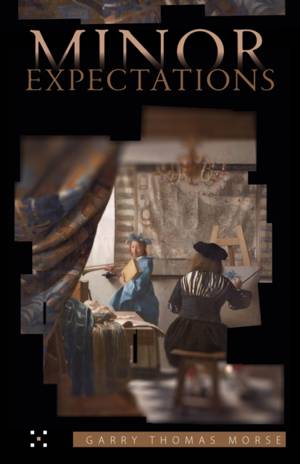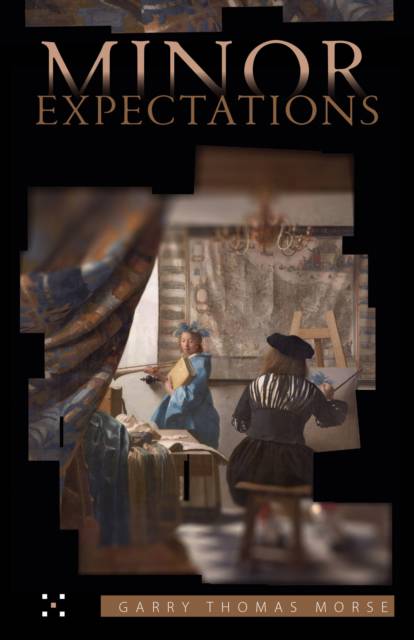
- Afhalen na 1 uur in een winkel met voorraad
- Gratis thuislevering in België vanaf € 30
- Ruim aanbod met 7 miljoen producten
- Afhalen na 1 uur in een winkel met voorraad
- Gratis thuislevering in België vanaf € 30
- Ruim aanbod met 7 miljoen producten
Omschrijving
In this prequel within a sequel, Diminuenda discovers that she stands to win a vast inheritance from her estranged father, the inimitable Minor, if she travels into the past and "collects" a number of objets d'art.
The cheeky diva travels to classical Greece, becoming the subject of the very painting she must steal as well as the focus of a Platonic dialogue. In ancient Rome, she dines with Emperor Tiberius and several Latin poets at his notorious grotto in Capri before stirring up more unrest among feuding Icelanders and First Nations as Minordis, the mysterious woman who steals the heart of the troublesome poet Loki. She then appears as a goddess to Botticelli in Renaissance Florence, but is soon toying with the Neoplatonic leanings of Lorenzo de' Medici as they wait out the aftermath of an assassination attempt, sharing a saucy round of Boccaccio-esque tales. In the realm of Louis XIV, Diminuenda lurks behind an unfinished play that explores the tension between Molière and the court composer Lulli, whose operatic innovations sound an ominous note for his cohort's splenetic invectives and social critique. In the most popular era for the epistolary novel, Augusta Ada Byron (Lovelace) is trying to cut down on laudanum, convinced of visits from the enigmatic Enchantress who will not only help her explain Charles Babbage's Analytical Engine, but also encourage her opium-fuelled hopes to bequeath to future generations a "Calculus of the Nervous System." Then, in WWII Britain, Agent D MINOR moves through a murky nouveau roman seemingly ruled by Alan Turing's theory of contradictions amid ill-fated schemes by MI5, including adaptations of Aleister Crowley's occultism, falcons trained to hunt homing pigeons, and brilliant forgeries of works such as Vermeer's The Art of Painting that will beguile the Third Reich.
Minor Expectations resumes The Chaos! Quincunx novel series.
Specificaties
Betrokkenen
- Auteur(s):
- Uitgeverij:
Inhoud
- Aantal bladzijden:
- 256
- Taal:
- Engels
- Reeks:
Eigenschappen
- Productcode (EAN):
- 9780889228917
- Verschijningsdatum:
- 28/10/2014
- Uitvoering:
- Paperback
- Formaat:
- Trade paperback (VS)
- Afmetingen:
- 137 mm x 213 mm
- Gewicht:
- 294 g

Alleen bij Standaard Boekhandel
Beoordelingen
We publiceren alleen reviews die voldoen aan de voorwaarden voor reviews. Bekijk onze voorwaarden voor reviews.











